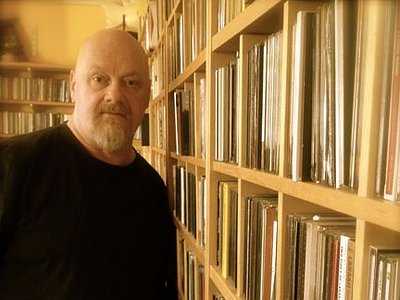At your discretion
Journalism and writing have changed considerably over the past century. What, do you feel, could – or should - be new forms and formats for music journalism?
It’s an incredibly challenging time for print journalism regardless of the subject covered. The net offers tremendous opportunities of course but not ones that allow individuals to make a real wage out of it and thereby turn professional. This state of affairs is also true for musicians.
I recently attended a panel discussion with some of the great and good of the music industry. The general consensus of the panel was that Spotify was great (for the industry), that record companies were going to become more and more transparent in their accounting to artists, and that the steep decline in CD sales after 2000 has bottomed out and sales (including digital) are set to rise once again.
For my part, I'm not remotely convinced that Spotify is a panacea for artists as it might be for the future of the record industry. As for increased transparency within record company dealings with artists, well, time will tell, but I won't be holding my breath. When it comes to sales, the big players will inevitably do better just through sheer ubiquity and market penetration. The fate of the smaller artists remains to be seen.
All agreed that there had never been so much music so readily available, and musicians need to spend time honing their skills as players, writers and performers. That sounds fine and dandy but in the industry today, and even more so in the industry of the future, I'd argue that the vast majority of musicians of the up-and-coming variety are essentially part-timers, holding down day-jobs to pay the bills and fitting in their music around that.
And that's the biggest difference between the music industry today and how it worked in the past. Unless you happen to come from a well-off family, there's no supportive infrastructure for aspirant musicians or journalists for that matter.
Terry Ellis was on the panel, and back when he was promoting gigs with new groups such as Jethro Tull, Ten Years After, Tyranosaurus Rex, etc., those and many other less notable acts in the second division, were on weekly retainers. Sometimes it came directly from a manager bankrolling his 'boys' and sometimes it came about by creative use of an arts school grant (not a loan as it is now but a free no-strings-attached grant).
Whatever the source, as a result musicians were able to spend all their available waking time practising their instruments and learning their craft. That, by and large, doesn't happen any more
The same is true for journalism. Lots of websites will want your work but they won’t want to pay for it. How will all this work out in the future? Despite all the talk about the net being a democratising and enabling force (which in principle it is), in practice, power shrinks to a tiny and moneyed elite.
Music-sharing sites and -blogs as well as a flood of releases in general are presenting both listeners and artists with challenging questions. What's your view on the value of music today?
When I was a kid music was absolutely central to almost every aspect of a young person’s life. It spoke about who you were and who you wanted to be. Everyone either wanted to be in a band or listen to a band. It was a cornerstone of popular culture.
Since then there’s been a shift and music is an accessory rather than the main thing. Of course there are exceptions and yes, it’s still cool but only fleetingly and not with the kind of depth that it once had. That’s not to say it doesn’t touch people’s lives - clearly it does, but it’s no longer central to the experience.
That said, the true intrinsic value of music is still to be found in its power to touch and transform the listener. Whereas once it did that on an almost mass scale, it now does so more discretely as a result of culture becoming more atomised, more niche and segmented through things like Youtube, streaming services and the scattering of traditional media. That’s not necessarily a bad thing by the way, but the change has all sorts of implications that have yet to be understood or thought through.
I take with a very large pinch of salt the pronouncements of futurologists and their long tails or manifestos telling us that information ‘just wants to be free’. Those folk are selling you snake oil just as assuredly as the sharks in suits from the old record companies.
Please recommend two magazines or journalists to our readers which you feel deserve their attention.
Richard Williams who used to write for the Melody Maker and currently tackles sport for The Guardian inspired me when I was a kid with. He still does. His book The Blue Moment is a wonderful meditation on creativity. His blog where he covers musical items is simply required reading as far as I’m concerned.
Mark Lewisohn’s comprehensive work on The Beatles is stunning - both with the classic Complete Recording Sessions from the 80s and the just released Tune In. I was talking to a pal and said to him “I like how at page 1,531 of the Lewisohn book it says "End of Part One". He replied This is Volume One, right? It ends with them all going to primary school. To which I said “No - it ends with their primary school being built!” I can only aspire to Lewisohn’s grasp of detail and ability to put it down in a way that is so compelling.
Please recommend two artists to our readers which you feel deserve their attention.
Nik Bartsch’s Ronin are a phenomenal group and best experienced in concert. There’s something magical happens when this group starting playing. Their music has the same repetitive qualities of Steve Reich’s work but with this subtle funkish undertow. Music you can dance to while appreciating the time signatures.
Guapo turned in one of the best albums of the year for me with The History Of The Visitation. I missed out on seeing them in concert but it took a crowbar to get their CD out of the player. Terrifically exciting.
Visit Sid Smith's blog at sidsmith.blogspot.co.uk or visit his website sidsmith.net







